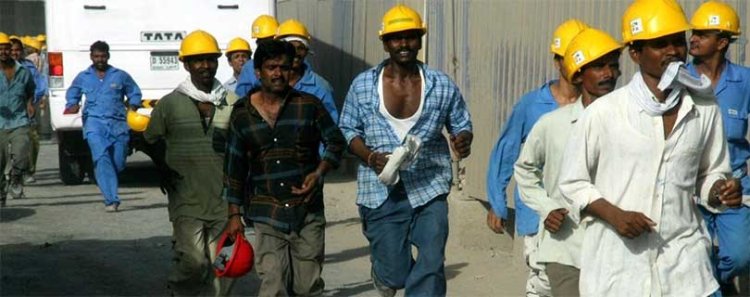The new law retains the exit permit system which allows employers to keep workers in Qatar against their will for up to five years, and to stop workers from changing jobs during their contract. It also now allows employers to keep workers’ passports, which was previously illegal although rarely if ever enforced. Workers are still banned from forming unions and from collective bargaining, and in the absence of a minimum wage, they are paid according to their country of origin rather than the actual job they do.
Sharan Burrow, ITUC General Secretary, said: “Qatar has re-named the appalling kafala system, but the fact is that migrant workers will remain bonded to their employers. Putting new labels on old laws does not remove the stain of modern slavery, and workers will continue to be forced to work under a feudal employment system. One of the world’s richest countries is responsible for keeping workers in poverty and servitude, with appalling work-related death and injury rates.”
The move by the Qatar government is aimed at deflecting international condemnation of the abusive treatment of migrant workers, in the lead-up to a key decision of the International Labour Organisation next March on a call for a Commission of Inquiry into Qatar.
“International companies operating in Qatar must ensure that their entire operations in the country comply with international labour standards, in the absence of 21st century labour laws, and FIFA and other sports bodies which are doing business with Qatar need to finally put exert real pressure for genuine reform,” said Burrow.


